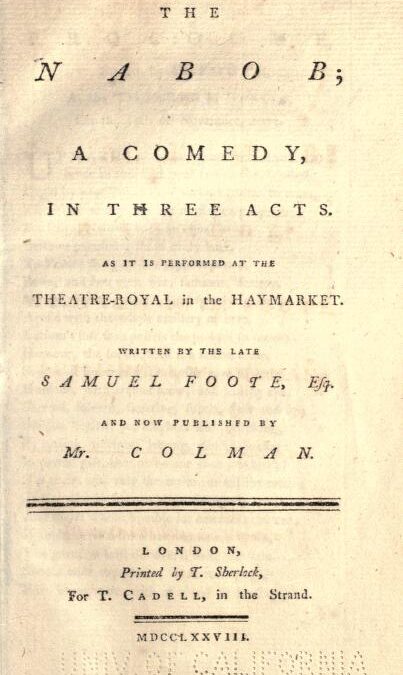Samuel Foote’s The Nabob, now obscure, is the first link picnic with the compound word “nick-nack.” He used it in the sense of dining en piquenique, which suggests familiarity. The alliterative corruption is meant to be humorous for those who knew about the trendy Parisian dining custom:
Janus. Time enough. —You had no particular commands, master Conserve?
Conserve. Only to let you know that Betsy Robins has a rout and supper on Sunday next.
Janus. Constant still, Mr. Conserve, I see. I am afraid I can’t come to cards, but shall be sure to attend the repast. A nick-nack, I suppose?
Conserve .Yes, yes; we all contribute, as usual: The substantials from Alderman Sirloin’s; Lord Frippery’s cook finds fricassees and ragouts; Sir Robert Bumper’s butler is to send in the wine, and I shall supply the desert.
Janus. There are a brace of birds and a hare that I cribbed this morning out of a basket of game.
Conserve. They will be welcome. [Act 1, sc. 2]
A nick-nack is a meal to which guests are expected to bring a share of food and wine. Where nick-nack originated is a mystery. Foote was known for his quick wit, and he likely coined it. Unfortunately for Foote, Nick-Nack is buried in The Nabob., and by not using picnic, he lost his chance for linguistic coup.
Ironically, an anonymous poem, “Samuel Foote,” appearing in a journal titled The Pic Nic (1803), remembered Foote as ” A satirist without gall, a random wit,/That shot his bolt, not caring where it hit.” By then, Foote was dead for twenty-six years, and the picnic was first entering the popular English vocabulary.
See Foote, Samuel. The Nabob; A Comedy in Three Acts. London, 1772

